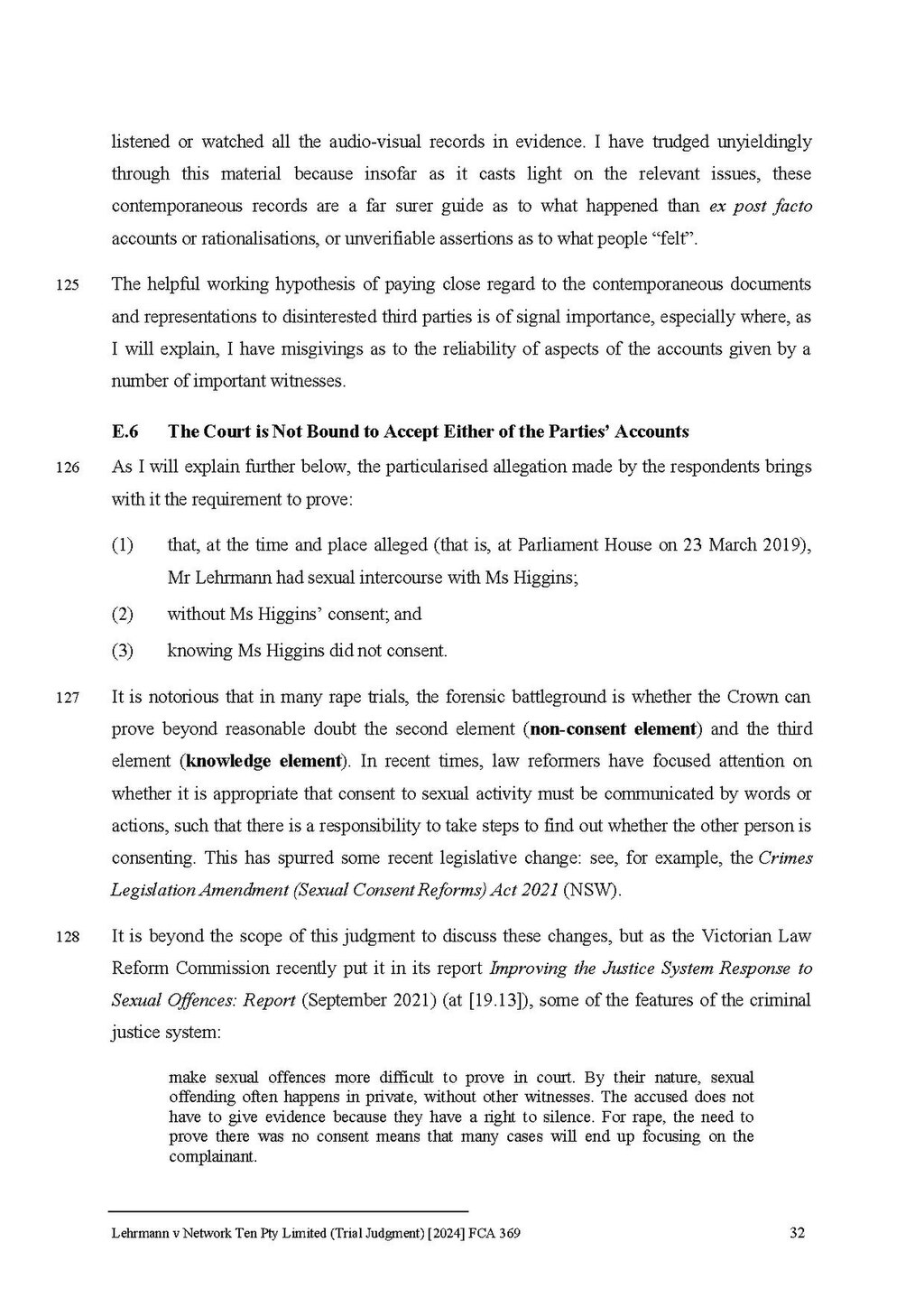listened or watched all the audio-visual records in evidence. I have trudged unyieldingly through this material because insofar as it casts light on the relevant issues, these contemporaneous records are a far surer guide as to what happened than ex post facto accounts or rationalisations, or unverifiable assertions as to what people "felt".
125 The helpful working hypothesis of paying close regard to the contemporaneous documents and representations to disinterested third parties is of signal importance, especially where, as I will explain, I have misgivings as to the reliability of aspects of the accounts given by a number of important witnesses.
E.6The Court is Not Bound to Accept Either of the Parties' Accounts
126 As I will explain further below, the particularised allegation made by the respondents brings with it the requirement to prove:
- (1) that, at the time and place alleged (that is, at Parliament House on 23 March 2019), Mr Lehrmann had sexual intercourse with Ms Higgins;
- (2) without Ms Higgins' consent; and
- (3) knowing Ms Higgins did not consent.
127 It is notorious that in many rape trials, the forensic battleground is whether the Crown can prove beyond reasonable doubt the second element (non-consent element) and the third element (knowledge element). In recent times, law reformers have focused attention on whether it is appropriate that consent to sexual activity must be communicated by words or actions, such that there is a responsibility to take steps to find out whether the other person is consenting. This has spurred some recent legislative change: see, for example, the Crimes Legislation Amendment (Sexual Consent Reforms) Act 2021 (NSW).
128 It is beyond the scope of this judgment to discuss these changes, but as the Victorian Law Reform Commission recently put it in its report Improving the Justice System Response to Sexual Offences: Report (September 2021) (at [19.13]), some of the features of the criminal justice system:
make sexual offences more difficult to prove in court. By their nature, sexual offending often happens in private, without other witnesses. The accused does not have to give evidence because they have a right to silence. For rape, the need to prove there was no consent means that many cases will end up focusing on the complainant.
